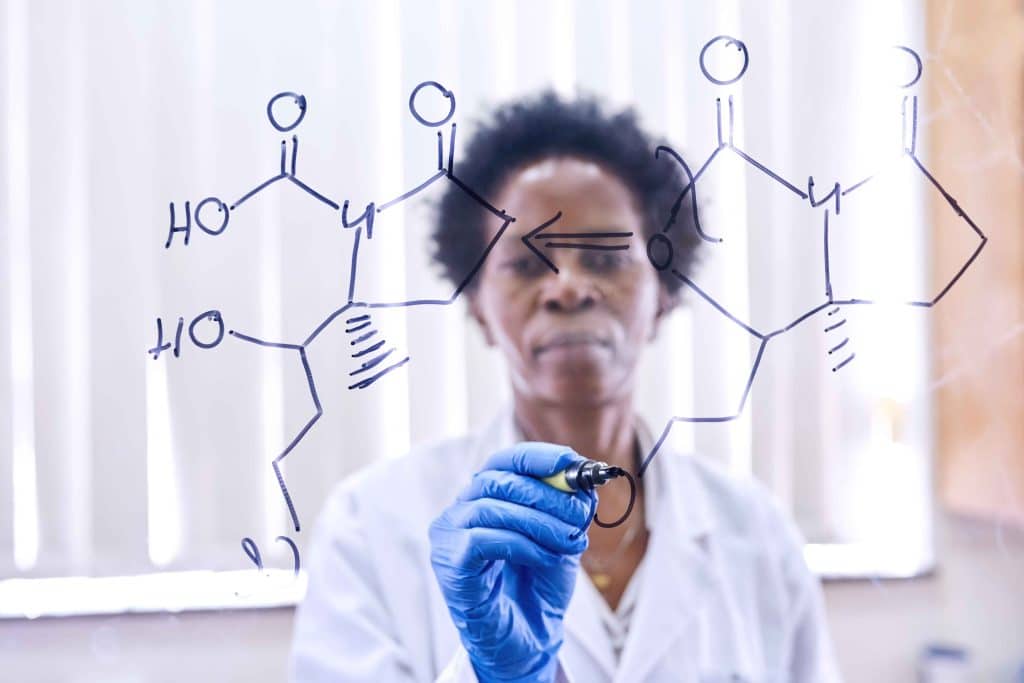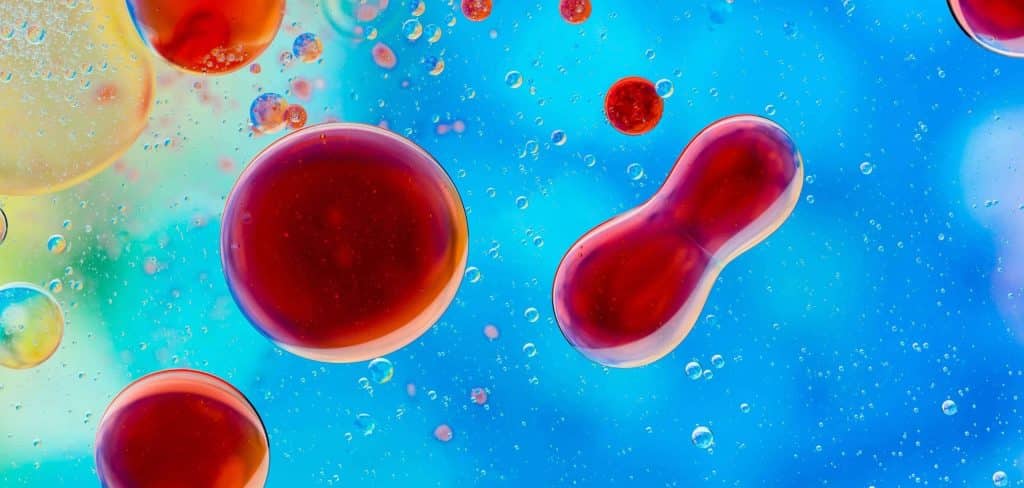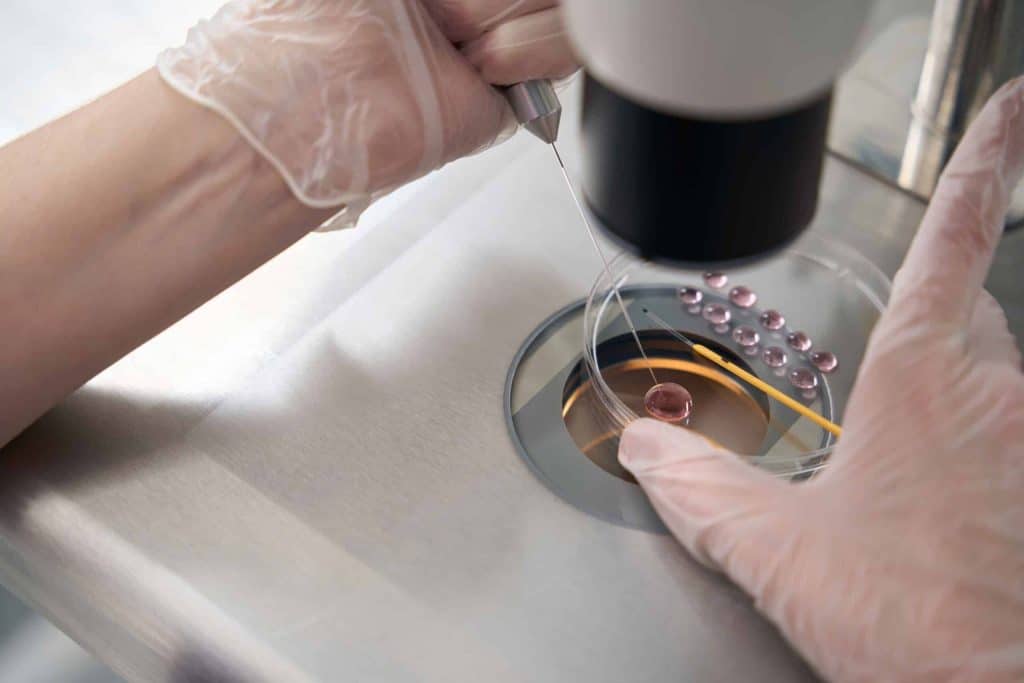It’s as if peptides have exploded onto the scene, darting into every corner of the health and beauty world. They’re in our creams, our serums, and even our workout supplements. But what exactly are these tiny powerhouses, and why have they become such a sensation? The answers aren’t as complicated as they might seem, yet they’re intriguing enough to make anyone want to learn more about the mysterious world of peptides.
Key Takeaways
- Peptides, tiny protein versions, are gaining popularity for health benefits like muscle growth, weight loss, and skin rejuvenation.
- Peptides are surpassing traditional fat burners in weight loss effectiveness with fewer side effects, promoting muscle recovery and growth.
- Peptide therapy and supplements offer targeted healing, boost athletic performance, muscle growth, and immune function, based on individual objectives.
- Various peptides serve different purposes in health and wellness, including anti-aging, hydration, muscle and tendon recovery, athletic performance, and lean muscle mass building.
Learn more about our Peptide Therapy
Peptides 101: What They Are and Why They’re Making Headlines
Peptides are tiny proteins that have become a hot topic in the wellness and skincare industries. They function in the body in unique ways, causing a surge in their popularity and integration into modern health practices. Particularly in anti-aging skincare, peptides are making waves, reshaping the industry with their promising benefits.
What Are Peptides and How Do They Work in the Body?
In the realm of health and wellness, peptides are making headlines, but what exactly are they and how do they function in our bodies? Peptides are short chains of amino acids that act as building blocks for proteins such as collagen, which are necessary for healthy skin. These peptides, including collagen peptides, can be introduced into the body through peptide therapy or peptide supplements.
They’re often used as integrative peptides in holistic health approaches. Known as healing peptides, they can help repair skin and muscle tissue. There are also muscle peptides and anti-aging peptides, popular in bodybuilding and skin care respectively. In short, these multi-purpose molecules are making their mark in various health sectors.
The Rise of Integrative Peptides in Modern Wellness
As the wellness industry continues to evolve, it’s hard to ignore the significant role integrative peptides are playing in modern health practices. They’re being hailed as the best peptides for muscle growth and weight loss. Many are seeking “peptide therapy near me” for personalized wellness solutions.
These peptides for muscle growth are popular among athletes, while those struggling with obesity are turning to peptides for weight loss. The best peptides for weight loss have shown promising results, making them a favorite in the wellness community.
Similarly, fat loss peptides and recovery peptides are gaining traction for their effectiveness. As science unravels more about these potent molecules, it’s clear that peptides are not just a trend, but a revolutionary approach to health and wellness.
Why Anti-Aging Peptides Are Reshaping the Skincare Industry
While they’re making big strides in the wellness sector, anti-aging peptides are also reshaping the skincare industry, becoming a staple in many products for their remarkable rejuvenating properties. They’re known to stimulate collagen production, vital for skin elasticity, and combat signs of aging such as wrinkles and fine lines.
Here’s a simplified breakdown of popular anti-aging peptides and their benefits in a table format:
| Peptide | Role | Skincare Benefit |
| Matrixyl | Stimulates collagen production | Reduces wrinkles |
| Argireline | Mimics Botox effect | Smoothens fine lines |
| Copper Peptides | Boosts collagen and elastin | Enhances skin firmness |
| Pentapeptides | Stimulates collagen and hyaluronic acid | Improves skin texture |
Their rising popularity is testament to their effectiveness, making them a game-changer in anti-aging skincare.

2. From Skin to Strength: The Many Uses of Peptides
Beyond their headline-making buzz, peptides hold a myriad of uses that span from beauty to brawn. They’re the secret weapon behind youthful, supple skin and the desired ally for muscle growth. Plus, their healing properties provide a significant boost to recovery, inflammation, and injury repair.
Collagen Peptides and Their Role in Skin Elasticity and Youthfulness
Collagen peptides play a critical role in maintaining skin elasticity and youthfulness, making them a popular component in many skincare products. They’re tiny proteins derived from collagen, a key building block for skin. As people age, collagen production diminishes, leading to wrinkles and sagging skin. This is where collagen peptides step in.
By stimulating collagen production, they help restore skin’s youthful appearance. They also aid in hydration, further enhancing skin’s plumpness and glow. Moreover, they may promote wound healing and reduce inflammation, contributing to overall skin health. While more research is needed, current evidence suggests that collagen peptides could be a powerful tool in the fight against skin aging. So, they’re not just another skincare fad; they could be a game-changer.
Peptides for Muscle Growth: Do They Actually Work?
Not only are peptides making waves in the beauty industry, but they’re also gaining attention for their potential role in muscle growth. They’re believed to enhance muscle protein synthesis, promote lean body mass, and improve athletic performance. Yet, it’s important to approach the hype with a dose of skepticism.
To understand peptides’ role in muscle growth, consider these points:
- Peptides are smaller versions of proteins, crucial for various biological processes.
- Some peptides stimulate the production of human growth hormone, which plays a role in muscle growth.
- They may assist in muscle recovery after intense workouts.
- Research on their effectiveness is mixed, with some studies indicating benefits and others showing negligible results.
- Peptides are not a magic solution: proper diet and regular exercises remain crucial.
Healing Peptides for Recovery, Inflammation, and Injury Repair
Diving deeper into the realm of peptides, they’re also making a name for themselves in the field of recovery, inflammation, and injury repair. Used in treatments for skin conditions, muscle recovery, and joint health, peptides offer a promising solution. They’re known to accelerate healing processes by stimulating the body’s own repair mechanisms.
| Peptide Type | Main Use |
| Collagen Peptides | Skin and Joint Health |
| BPC-157 | Wound Healing |
| Thymosin Beta-4 | Tissue Repair |
| Ipamorelin | Muscle Recovery |
These peptides aren’t miracle workers, but they’re a step in the right direction. With further research, we may soon see them becoming a mainstay in various fields of medicine, from dermatology to sports science.
3. Weight Loss and Fitness: The Peptide Revolution
In the realm of weight loss and fitness, peptides are causing quite a revolution. They’re not just competing with traditional fat burners, but often surpassing them in effectiveness. From shedding fat to building muscles, peptides are redefining bodybuilding norms.
Peptides for Weight Loss vs. Traditional Fat Burners
When it comes to weight loss, peptides are quickly gaining popularity as a more effective alternative to traditional fat burners. Unlike conventional fat burners that often come with side effects like jitteriness and headaches, peptides are known for their gentler impact on the body.
Here’s why peptides are being favored over traditional fat burners:
- Peptides can help boost metabolism, encouraging the body to burn fat more efficiently.
- They work by enhancing growth hormone production, which has a direct link to fat loss.
- They’re generally well-tolerated, with fewer side effects than many traditional fat burners.
- They can also aid in muscle recovery and growth, contributing to a leaner physique.
- They can promote better sleep, which is crucial for weight loss.
Peptides are proving to be a game-changer in the weight loss arena.
Best Peptides for Weight Loss and Fat Loss Peptides Explained
Now that we’ve explored why peptides are preferred over traditional fat burners, let’s unpack the best peptides for weight loss and explain how fat loss peptides work. Two top contenders are HGH Frag 176-191 and CJC-1295. HGH Frag 176-191, a fragment of the Human Growth Hormone peptide, targets fat cells directly, promoting fat loss and increasing energy expenditure.
On the other hand, CJC-1295 stimulates natural growth hormone production, which can lead to fat loss over time. Remember, peptides aren’t magic bullets. They work best in tandem with a balanced diet and regular exercise. And while they’re generally safe, it’s wise to consult a healthcare professional before starting any new supplement regimen.
Peptides Bodybuilding Trends: How Muscle Peptides Aid Gains
Shifting gears to bodybuilding, peptides are making quite a splash, significantly aiding muscle gains and redefining fitness trends. They’re not just a passing fad; peptides are reshaping how bodybuilders approach their workout routines and recovery periods.
To paint a picture of how muscle peptides aid gains, consider the following:
- Peptides promote quicker muscle recovery by accelerating protein synthesis.
- They increase lean muscle mass by encouraging the release of growth hormones.
- Peptides enhance athletic performance by improving stamina and endurance.
- Their anti-inflammatory properties help reduce post-workout aches and injuries.
- Peptides can also improve sleep quality, a critical aspect of muscle recovery and growth.
In essence, peptides are proving to be a game-changer in bodybuilding, offering a suite of benefits that extend beyond mere muscle growth.

4. Navigating Peptide Therapy: What to Know Before You Start
Before embarking on any new health regimen, it’s essential to understand the basics. Peptide therapy, although increasingly popular, is no exception to this rule. This section will equip readers with the necessary knowledge about peptide therapy, how to find a reputable provider, and the science behind its effectiveness.
What Is Peptide Therapy and Who Should Consider It?
Delving into the realm of peptide therapy, it’s essential to understand the basics and determine who could potentially benefit from this modern medical trend. Peptide therapy uses specific chains of amino acids, known as peptides, to prompt certain biochemical reactions in the body.
Here’s a snapshot of what peptide therapy entails:
- It’s a targeted approach, capable of addressing specific health conditions.
- It can stimulate the body’s natural healing processes.
- It’s been linked to benefits such as improved immunity, weight loss, and anti-aging effects.
- Those with chronic conditions, such as autoimmune diseases, may find it beneficial.
- It’s not for everyone, as potential side effects and risks exist.
Finding Peptide Therapy Near Me: Questions to Ask Your Provider
When looking for a local provider of peptide therapy, it’s crucial to ask the right questions to ensure a safe and effective treatment plan. One ought to inquire about the practitioner’s qualifications and experience with peptides. It’s important to ask how regularly they’ve worked with this form of therapy and what types of conditions they’ve treated.
They should query if the provider personally assesses the clients’ health status and tailors the therapy accordingly. It’s also vital to understand the potential side effects and how the provider manages them. Lastly, they should confirm if the provider follows up post-therapy to monitor progress. By asking these questions, they can ensure they’re not just finding any provider, but the right one.
Are Peptide Supplements Worth It? What Science Says
As we explore the world of peptide supplements, it’s essential to examine what current scientific research reveals about their effectiveness and value. The consensus isn’t unanimous – some studies highlight potential benefits, while others suggest caution due to lack of long-term data.
- Some research indicates that peptides can boost athletic performance by improving muscle growth and recovery.
- Peptides may have potential in skincare, shown to promote collagen production.
- Certain peptide supplements have been linked to enhanced immune function.
- Despite these potential benefits, there’s a lack of long-term studies on peptide supplements.
- Potential side effects and risks are not fully understood yet, necessitating further research.
5. Choosing the Right Peptide for Your Goals
When it comes to peptides, selection is key and depends largely on one’s specific objectives. For instance, certain peptides may promote muscle growth and improve body composition, while others are known for their anti-aging properties. Additionally, athletes may find peptides beneficial for post-workout recovery, providing a much-needed boost in repair and regeneration.
The Best Peptides for Muscle Growth and Body Composition
To achieve optimal muscle growth and improve body composition, it’s crucial to select the right peptide tailored to your specific goals. Peptides can stimulate muscle growth, increase strength, and improve body composition by triggering the release of growth hormone.
Here are some of the best peptides for muscle growth and body composition:
- CJC 1295: Enhances muscle growth and plays a key role in fat loss.
- Ipamorelin: Known for its performance-enhancing effects and muscle-building properties.
- IGF-1: Boosts muscle growth, enhances fat burning, and improves recovery.
- GHRP-6: Stimulates growth hormone release, promoting muscle growth and fat loss.
- BPC 157: Enhances the healing of muscles, tendons, and ligaments, which is vital for bodybuilders and athletes.
Anti-Aging Peptides vs. Peptides Skincare: Key Differences
Understanding the key differences between anti-aging peptides and peptides used in skincare can help you choose the right peptide for your goals. Anti-aging peptides, such as Matrixyl and Argireline, are designed to boost collagen production, reduce wrinkles, and improve skin elasticity. They’re commonly found in serums, creams, and injectables.
Peptides in skincare, on the other hand, have a broader purpose. They’re not just aimed at aging concerns but also skin hydration, pigmentation, and healing. They’re found in a variety of products like cleansers, toners, and masks.

Recovery Peptides for Athletes: Boosting Post-Workout Repair
Athletes often turn to recovery peptides to expedite post-workout repair and enhance overall performance. These peptides accelerate the body’s natural healing process, reducing downtime and getting athletes back in the game faster. Selecting the right peptide for specific fitness goals is critical.
Here’s what to consider:
- BPC-157 aids in muscle and tendon healing, making it a top pick for those prone to injuries.
- MK-677 boosts growth hormone levels, ideal for athletes seeking to build lean muscle mass.
- CJC-1295 improves overall athletic performance by promoting fat loss and lean muscle growth.
- Ipamorelin stimulates growth hormone production, supporting recovery and muscle growth.
- GHRP-2 enhances muscle recovery and strength, perfect for athletes focused on strength training.
Choosing appropriate peptides can significantly improve post-workout recovery and athletic performance.
Interested in learning more? Follow us
Conclusion
While peptides may seem like the latest fad, they’re rooted in sound science and offer a plethora of health and beauty benefits. Some might worry about their safety, but with the right guidance and approach, peptide therapy can be a game-changer. Whether it’s for weight loss, skin health, or improved strength, there’s likely a peptide that’s just right for your goals. Unleash the power of peptides and transform your well-being.
Frequently Asked Questions
What are peptides, and how do they work in the body?
Peptides are short chains of amino acids that act as messengers in the body, promoting functions like muscle growth, skin repair, and fat metabolism. Whether you’re exploring peptide therapy, using collagen peptides for skin care, or trying peptides for weight loss, these powerful molecules target specific physiological processes to enhance wellness.
Are collagen peptides and anti-aging peptides the same thing?
Not exactly. Collagen peptides specifically boost collagen production for skin elasticity and joint support, while anti-aging peptides may also reduce wrinkles, improve hydration, and support cellular regeneration. Both are popular in peptides skin care routines but serve slightly different purposes.
What are the best peptides for muscle growth and recovery?
Top contenders include CJC-1295, Ipamorelin, and IGF-1—widely recognized as the best peptides for muscle growth and recovery. These muscle peptides enhance growth hormone levels, accelerate healing, and are often used in peptides bodybuilding regimens by athletes and fitness enthusiasts.
Can peptides help with fat loss or weight management?
Yes. Specific fat loss peptides, like HGH Frag 176-191 and CJC-1295, are known for stimulating metabolism and targeting fat cells. These are among the best peptides for weight loss, offering an alternative to harsh fat burners—especially when combined with diet and exercise.
Is it safe to start peptide therapy or supplements?
While many peptide supplements are available over the counter, it’s best to consult a medical provider—especially if you’re considering peptide therapy near me. A healthcare professional can guide you on integrative peptides tailored to your goals, whether for healing, muscle gain, or anti-aging.
